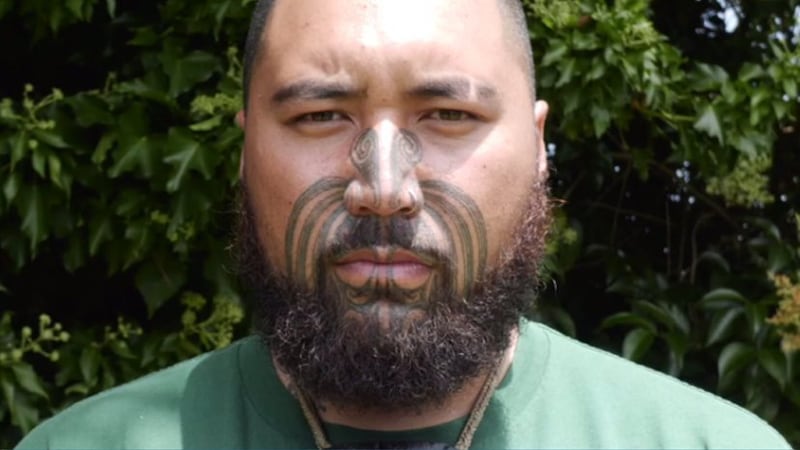Māori are taking up facial moko in staggering numbers but, with this resurgence, comes difficulties.
Hirini Kātene has spent the past 13 years applying moko to many Māori. Two years ago, he felt compelled to get his mataora done. It's something he’s proud of.
“I do moko, I'm a practitioner, kai tā. I thought that it was only right for me to wear it first before I was to give it out to our people,” he said.
Although he says his experience of wearing mataora has been positive, there is a cost that he and others pay - the constant stares and discrimination in public spaces.
He cites visiting bars in the Auckland CBD, where he has been denied entry. He says the reason is hidden behind other reasons for him being denied entry.
No entry
“They've just said 'oh you can't come in because you don't have a shirt on or a clean shirt on.' Yet you have a look and there are people already in there with the same kind of clothes on.”
Earlier this month a Christchurch man who proudly wears his mataora was denied entry to a local bar. He recorded the confrontation he had with security and they can be heard saying “we have a policy, we don’t let people in with intimidating tattoos."
These experiences compelled Rangimiria Ihakara to make a petition calling for changes to the Human Rights Act to include the moko as a ground to prohibit discrimination.
“Ngā kupu pera ki te moko kauae, mataora era kupu. (Words like moko kauae, mataora) to be put into the Human Rights Act so we no longer have to stand up for our rights when we're denied access in public.”
At the time of publication, 6,954 people have signed the online petition, just short of her goal of 7,000.
7000 supporters
Section 21 of the Human Rights Act outlines the prohibited grounds of discrimination. They include sex, religious belief, colour, race, ethnic or national origin, disability, age, political opinion, employment status, family status and sexual orientation to discriminate people on the grounds of ethnicity, religion and gender.
Hirini remains hopeful discrimination will disappear for people like him who wear mataora or moko kauae.
“Just open the doors for us. We are only bringing you guys business as well. It's got nothing to do with what is on our faces”
Ihakara aims to present the petition to the Human Rights Commission next month.

